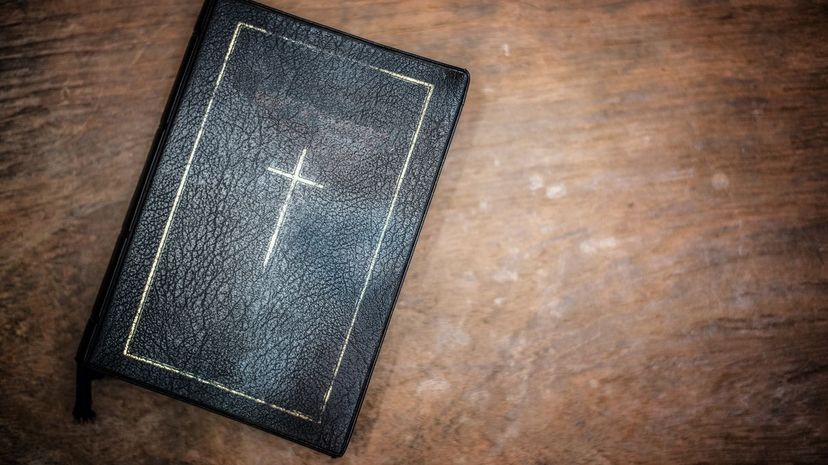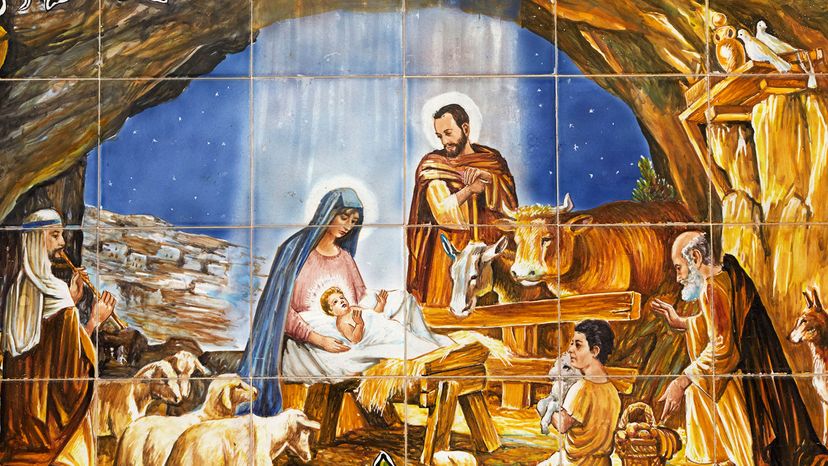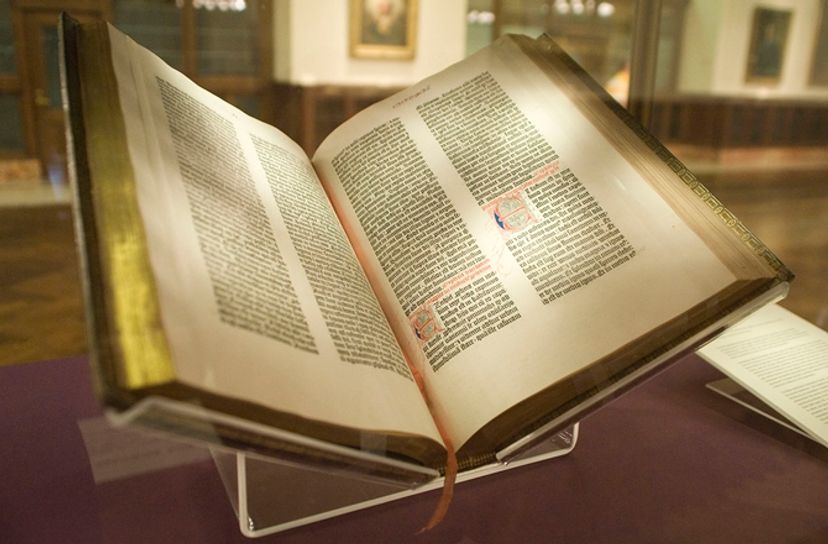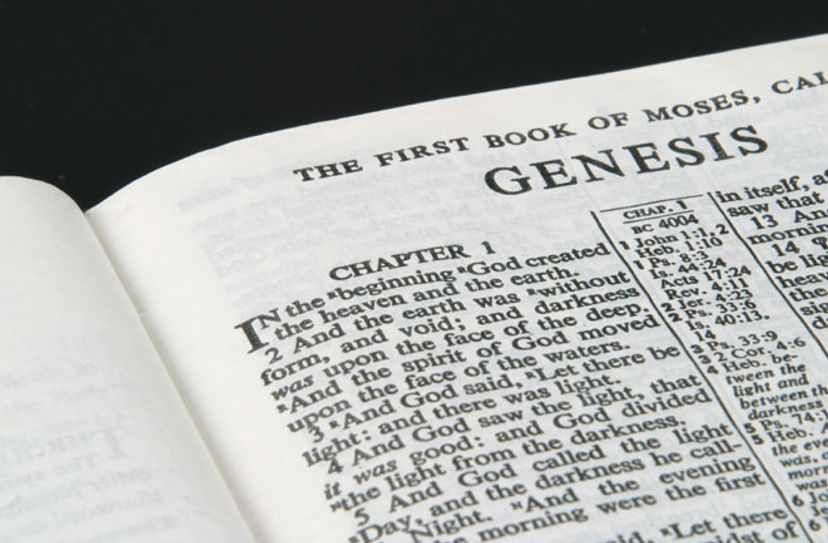
About This Quiz
"Are you ready to put your Bible knowledge to the test with the Two Truths and a Lie: The Bible Quiz? Dive into the world of Jacob, Rahab, and Peter as you unravel the web of lies that play a pivotal role in biblical history. Can you separate fact from fiction and uncover the one untrue statement in each question?
Discover the fascinating stories of deception that ultimately led to the fulfillment of God's will. From Jacob's deceit to Rahab's cunning actions, lies play a surprising role in shaping the events of the Bible. Test your knowledge and see if you can untangle the web of truths and lies that make up the fabric of this ancient text.
Get ready to challenge yourself and see if you can rise to the occasion in this quiz. With every question posing a new challenge, you'll need a keen eye and a deep understanding of the Bible to come out on top. So, put your thinking cap on and see if you have what it takes to excel in the world of biblical trivia!
"Though an extra-biblical tradition holds that Adam had a first wife named Lilith, she does not appear in the creation story. Rather, God puts Adam to sleep, removes one of his ribs, and creates a woman from it (the first surgery, right there in Genesis!). Adam names his wife "Eve."
Joppa, now called Jaffa, is famous for its oranges. That's why the British treat, Jaffa Cakes, are orange-flavored under their coating of chocolate. And while Jonah sailed from Jaffa, intending to get to Tarshish, he didn't have a orchard there.
Sarah's name was changed as part of God's covenant with her and Abraham (formerly "Abram"). She was also Abraham's half-sister -- hey, the rules were different back then! But she did not cause Hagar's death. She treated Hagar cruelly after Hagar became pregnant with Abraham's child, and the maid did run away, but she survived to become the mother of a new nation, the Ishmaelites.
Advertisement
Isaac preferred his older son Esau, the hunter, to Jacob, the trickster. This is why Jacob tricked his father into believing he was Esau by covering his arms with hairy goathide -- Esau was very hirsute -- and letting his blind father touch him, to ascertain his identity. Isaac then mistakenly gave his blessing to the wrong son, the younger-born Jacob.

Peter was "the rock," which is why in addition to his original name "Simon," he was given the name "Peter," for "rock (petra)." Jesus identifies him clearly as his choice for leader of the early church -- or, in the Catholic tradition, the first pope.
Ham is one of the sons of Noah, and the one who disrespectfully looked upon his father's nakedness when Noah was drunk. Ham is also called "Canaan," linking him with the pagan nations who occupied the land marked by God for Israel. Altogether, he's not one of the Bible's best-loved figures.
Advertisement
In his waning years, David was given a young woman, Abishag, to sleep in his bed with him and keep him warm. They did not have a child together. In fact, it is possible that Abishag's role was a kind of test: if David could not consummate a relationship with her, then he had lost his sexual potency and could no longer be king. This idea is not commented on in the Bible itself; it is a suggestion made by historians with a special interest in the scriptures.
Generally speaking, if you want to read about Christ's time on earth, you turn to the gospels. However, the book of Acts opens during the days after Christ's resurrection. In these pages, Jesus walks and talks with the disciples on earth, giving last instructions before ascending to heaven.
Bathsheba was married to Uriah when she was seduced by David, so her pregnancy was a vexing problem for the king, which he solved by sending Uriah to his death at the front lines. Bathsheba's child died a few days after its birth, and it was only later that she and David had Solomon.
Advertisement

Methuselah had at least one son, Lamech. We know this because the Bible notes that Methuselah lived "after the birth of Lamech seven-hundred and eighty-two years." Fun fact: His father Enoch is believed to be one of two people in the Bible who never died, because Genesis says "God took him," instead.
Luke is the author of the third gospel and, it is believed, the book of Acts; some theologians consider these two books to be "Luke-Acts," best considered as one work. The other two names above are tribes of Israel -- which includes Dan, though that's a very modern-sounding name!
In Egypt, Moses killed a slave overseer who was beating a Hebrew. God appears to have forgiven that, choosing Moses to lead the people out of Egypt. Later, though, God denied Moses the chance to enter into the land of Canaan because he altered, if not outright disobeyed, God's orders (Num. 20: 2-10).
Advertisement
The story of Leah and Rachel is a famous one. Jacob wanted Rachel, but his father-in-law Laban tricked him into marrying Leah, the oldest, first; this was the custom of Laban's people at the time. That must have been a thick bridal veil!
Samuel recognized Saul as the man who God had ordained to be the first king of Israel. Later, though, he anointed David as the future monarch. This earned Saul's enmity for both of them, and the king was an increasingly unstable man in his later years.
If you didn't guess that "2 Corinthians 13" was the lie, well, this one was sneaky. It's 1 Corinthians 13 -- very close. This passage, which ends with "These three remain: faith, hope and love, but the greatest of these is love," is a favorite for reading at weddings.
Advertisement
It's true that Revelation is the only book dedicated wholly to the story of the end of the world. However, Matthew 24 contains another, shorter description, given by Jesus himself. Johnny Cash, religious in his later life, cited it in one of his songs: "Matthew 24 is knocking at the door."
Calormen was a country in the "Chronicles of Narnia" by C.S. Lewis. It was a thinly-veiled depiction of the Arab-Muslim world, and the enemy of (Euro-Christian) Narnia, though the countries weren't usually at open war.
Deborah, the prophetess, was a judge of Israel. The judges served as the Israelites' highest authority before the people demanded a monarchy, and chose King Saul by casting lots -- not to be confused with "votes." This was a form of divination, not democracy.
Advertisement
There's no reason to disbelieve the Bible about Joseph's coat of many colors. It's one of the better-known facts about Joseph. Far fewer people have heard of Asenath, but she was the Egyptian wife of Joseph, and the mother of Manasseh and Ephraim with him.
Matthew, Mark and Luke are the "synoptic" gospels, the ones whose structure and content closely mirror each other. John takes a more philosophical approach, and one of its verses, John 3:16, is held up on signs at ballgames in an attempt to spread the word of God. Its text: "For God so loved the world that he sent his only son, that whoever believes in him may not perish, but have eternal life."
Malachi is the last book of the Old Testament, or Jewish Bible. However, the final book of the Christan Bible is "Revelations," or, "The Revelation to St. John." The book which does not mention God is the book of Esther.
Advertisement
Numbering the verses was a later innovation, of about Shakespeare's day. The other two facts cited above are true. We're indebted to "factretriever.com" for their fascinating list, "50 Amazing Bible Facts," from which we learned this "meta" material.
Matthew was written, scholars believe, too long after Christ's death to have been written by the disciple Matthew. However, it does contain parables, as well as Matthew 24, in which Jesus describes the end of the world. (You'll see this verse mentioned elsewhere in this quiz!)

"Armageddon" was a 1998 sci-film about a killer asteroid and the space cowboys out to stop it; it had nothing to do with the events of Revelation. The curse is found just before the final word "amen," in verses 18 and 19.
Advertisement
Melchizedek, in Genesis, is both king and priest. So, in the Christian tradition, he prefigures Christ. However, nowhere is he identified as one of Jesus's ancestors, though Jewish tradition associates him with Noah's son Shem.
Moses married Zipporah, the daughter of a Midianite priest. Later in Exodus we learn that Aaron and Miriam criticized for Moses foir marrying "a Cushite woman." However, the text is unclear on when this happened, or if the Cushite woman was, in fact, Zipporah.
Acts is the story of the early Christians, and some of it is narrated by someone who uses the pronoun "I." However, though women were involved in the early church and thus appear in Acts -- they include Dorcas and Sapphira --there is no evidence for a woman writer.
Advertisement
The Byrds wrote "Turn! Turn! Turn!" using verses from Eccelesiastes: "For every thing there is a season, and a time for every purpose under heaven." The words "Turn, turn, turn" are a refrain between verses, and not nearly as emphatic as the exclamation points make it seem.
Ahab and Jezebel were the enemies of the earlier prophet Elijah. Jeremiah lived later, during Josiah's reign, and he prophesied the Babylonian invasion and the Jews' exile as slaves. From his dour predictions, we get the word "jeremiad," meaning "a long sad story or lament."
For a time, Matthew was believed to be the first gospel written, and thus is placed first in the New Testament. Gradually, opinion came around to the idea that Mark was written first, and the other two "synoptic" gospels draw from it. (John, as we've noted elsewhere, was really doing his own thing!)
Advertisement
Obadiah is only 21 verses long, and describes the coming destruction of the Edomites, the enemy of Israel. However, Obadiah isn't the final book in the Old Testament; that would be Malachi, as noted elsewhere in this quiz.
Jude really is part of the Bible, though not nearly the most famous of its books. It's a short, but fascinating, epistle in the New Testament. What makes it so interesting? Among other things, it refers to the archangel Michael and the Devil fighting over the body of Moses.
Women dominate the early part of the book of Judges. Deborah was the judge of Israel in chapters 4 and 5, when she tells Barak, a warrior, that the Lord "will deliver Sisera into the hand of a woman." This does indeed happen, with Jael giving Sisera shelter from his enemies, but then driving a tent peg through his head as he sleeps.
Advertisement
It is the book of Philemon which argues on behalf of Onesimus, a truant slave who committed an unspecified offense against his master (besides, apparently, running away). Titus is a book mostly concerned with the duties of bishops in the early church; its authorship is disputed.
The apostle Peter, or "Saint Peter," undoubtedly wrote more than two letters to various groups of early Christians. However, only two are in the New Testament -- 1 Peter and 2 Peter. They are the ones that mention the "harrowing of hell" (Jesus preaching to the pre-Christian dead in the afterlife) and the Second Coming.